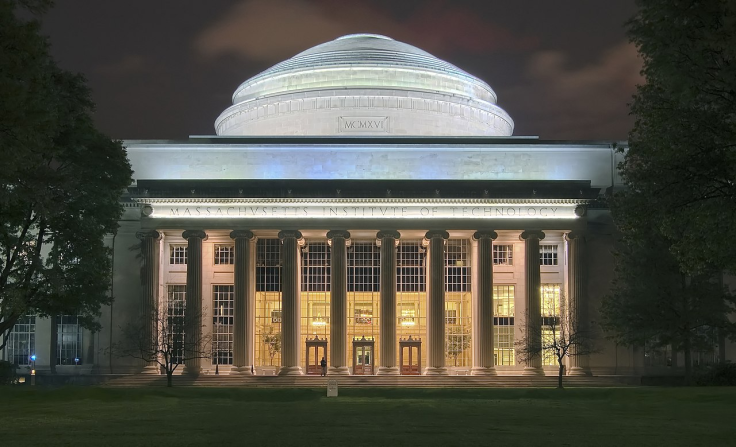Seven Elite Universities Just Rejected Trump's Funding Offer — Here's What He Demanded in Return
By
WHAT YOU NEED TO KNOW:
The Offer: The Trump administration sent letters to 12 universities offering priority access to federal research grants and White House invitations in exchange for signing a "compact" with extensive policy demands.
What They Demanded: Universities must eliminate race and sex from admissions, cap international students at 15%, freeze tuition for five years, allow mandatory anonymous polls monitoring faculty and student ideology, adopt biological definitions of gender, and shut down offices that "punish conservative ideas."
Who Said No: Seven universities have rejected the offer: MIT, University of Pennsylvania, USC, Dartmouth, Brown, University of Virginia, and University of Arizona. Vanderbilt and UT Austin are reviewing. Arizona State, Kansas, and Washington University in St. Louis were recently added.
The Catch: Schools would face annual mandatory surveys to ensure compliance. California's governor threatened to withhold state funding from any university that signs. Universities have increased lobbying spending by 122% to fight Trump administration pressure.
A Deal Too Good (and Too Bad) to Be True
When the White House offers you millions in priority research funding, preferential treatment on grants, and invitations to exclusive events, there's usually a catch.
For 12 elite American universities, that catch turned out to be a lengthy list of demands that seven schools say would compromise their academic freedom and institutional independence.
The October 1 letters—sent to nine universities initially, with three more added later—represent one of the Trump administration's most aggressive attempts yet to reshape higher education. And so far, most schools are saying: thanks, but no thanks.
What's Actually in This Compact?
The document, obtained by CNN, reads like a conservative wishlist for transforming American universities. Here's what schools would have to agree to:
Admissions Changes:
- Remove race, sex, and ethnicity from all admissions considerations
- Cap international student enrollment at 15% maximum
- Maintain these policies permanently as part of the agreement
Ideological Requirements:
- Foster "a vibrant marketplace of ideas on campus" with "no single ideology dominant"
- Assess faculty and staff viewpoints to ensure ideological balance
- Reform or close "institutional units that purposefully punish, belittle, and even spark violence against conservative ideas"
Gender Policies:
- Adopt definitions of gender "according to reproductive function and biological processes"
- Implement these definitions across campus policies
Financial Mandates:
- Freeze tuition costs for five years
- Commit to "grade integrity" (addressing grade inflation)
Compliance Monitoring:
- Conduct annual mandatory "anonymous polls" of faculty, students, and staff
- Use surveys to verify compliance with all compact terms
- Submit to ongoing monitoring and reporting
What Schools Get in Return:
- Priority consideration for federal research grants
- "Allowance for increased overhead payments where feasible"
- Invitations to White House events and meetings with officials
- Access to "substantial and meaningful federal grants"
- Other unspecified "federal partnerships"
The letter made clear this was essentially a take-it-or-leave-it offer: while "limited, targeted feedback" would be welcomed, the compact was "largely in its final form." Schools had until November 21, 2025 to decide.
Why Universities Are Saying No
Seven universities have now formally declined, and their rejection letters reveal common concerns about what signing would mean.
University of Arizona President Suresh Garimella put it bluntly on Monday: "We seek no special treatment and believe in our ability to compete for federally funded research strictly on merit."
He acknowledged common ground with the administration's goals but warned: "A federal research funding system based on anything other than merit would weaken the world's preeminent engine for innovation, advancement of technology, and solutions to many of our nation's most profound challenges."
MIT President Sally Kornbluth said the compact included principles that "would restrict freedom of expression and our independence as an institution." For a university built on scientific inquiry and academic freedom, those restrictions were non-starters.
Dartmouth President Sian Leah Beilock was equally firm: "I do not believe that a compact—with any administration—is the right approach to achieve academic excellence, as it would compromise our academic freedom, our ability to govern ourselves, and the principle that federal research funds should be awarded to the best, most promising ideas."
USC Interim President Beong-Soo Kim warned of international precedents: "Other countries whose governments lack America's commitment to freedom and democracy have shown how academic excellence can suffer when shifting external priorities tilt the research playing field away from free, meritocratic competition."
University of Pennsylvania President J. Larry Jameson said Penn "provided focused feedback highlighting areas of existing alignment as well as substantive concerns" before declining. The school consulted with faculty, students, and trustees before deciding.
Brown University President Christina H. Paxson noted the compact "by its nature and by various provisions would restrict academic freedom and undermine the autonomy of Brown's governance."
University of Virginia declined hours after attending a White House meeting about the compact. Interim President Paul Mahoney said that while there were "many areas of agreement," the school believed "the best path toward real and durable progress lies in an open and collaborative conversation."
Interestingly, UVA then reached a separate agreement with the administration days later—one that ended federal investigations into admissions practices without monetary penalties or outside monitors, while still addressing some of the administration's concerns about racial discrimination.
The Two Schools That Haven't Decided
Not every university rushed to reject the offer.
Vanderbilt University Chancellor Daniel Diermeier pushed back on reports that his school was asked to accept or reject the deal, saying instead: "We have been asked to provide feedback and comments as part of an ongoing dialogue, and that is our intention."
He emphasized that "academic freedom, free expression and independence are essential for universities to make their vital and singular contributions to society" — neither embracing nor rejecting the compact.
University of Texas at Austin took a notably different tone than its counterparts. Officials didn't commit to signing but said they "welcome the new opportunity presented to us and we look forward to working with the Trump Administration on it."
Given Texas's more conservative political environment and recent controversies over diversity initiatives, UT Austin may be more receptive to the administration's demands than coastal universities.
The Three New Schools Added to the List
After the initial nine schools received letters on October 1, three more universities were invited to join following a White House meeting on Friday:
- Arizona State University
- University of Kansas
- Washington University in St. Louis
Representatives from these schools attended Friday's meeting along with Vanderbilt, Dartmouth, UT Austin, Arizona, and UVA. The White House called the conversation "productive" and said it's now up to the schools to decide.
The California Factor
Universities in California face an additional complication: their own governor.
California Governor Gavin Newsom, a Democrat, has threatened to withhold state funding from any California university that signs the compact. He called it a "sell-out" that would compromise institutional integrity.
This puts schools like USC in a particularly difficult position—caught between potential federal benefits and guaranteed state consequences. For USC, which rejected the compact, that state pressure likely played a role.
The Money Behind the Fight
Federal research funding is massive business for elite universities. Schools receive billions annually in grants from agencies like the National Institutes of Health, National Science Foundation, and Department of Defense.
Having "priority consideration" for these grants could mean hundreds of millions in additional funding over time. That's serious money that funds labs, pays researchers, attracts top faculty, and drives innovation.
But there's also a lot at stake in resisting the administration. A CNN analysis found that universities targeted by Trump have increased their lobbying spending by 122% in Q2 2025 compared to last year. Nine out of 14 institutions specifically singled out by Trump have doubled their lobbying expenses.
These schools are investing heavily in Washington influence to protect their interests—and that investment appears to be paying off as most reject the compact.
Harvard's Different Strategy
Notably absent from the list of schools receiving the compact letter is Harvard University—despite being perhaps Trump's most prominent higher education target.
Harvard has taken the Trump administration to court directly and has had some judicial victories. The administration continues seeking new ways to pressure the school, but Harvard has chosen legal battles over negotiated compacts.
This legal strategy may explain why Harvard wasn't offered the same deal—the administration may view them as beyond negotiation.
What This Means for Academic Freedom
The compact represents an unprecedented attempt by a presidential administration to directly control university policies in exchange for funding advantages.
Traditionally, federal research grants are awarded based on scientific merit through peer review processes. Researchers submit proposals that are evaluated by experts in their fields. Politics and ideology aren't supposed to factor into which research gets funded.
The compact would fundamentally change that system by giving preferential treatment to universities that adopt specific ideological positions—particularly on issues like DEI, gender, and campus political culture.
Critics argue this would:
- Compromise the integrity of scientific research funding
- Turn federal grants into political weapons
- Force universities to abandon policies they believe promote excellence
- Create a two-tier system where ideology matters more than research quality
Supporters counter that universities have become ideologically one-sided and that these requirements simply restore balance and accountability to institutions receiving taxpayer funding.
The Broader War on Higher Education
The compact is just one front in the Trump administration's broader campaign to reshape American universities.
Other efforts include:
- Threatening or withholding funding from schools over DEI policies
- Investigating admissions practices for alleged discrimination
- Pressuring universities on transgender athlete policies
- Scrutinizing international student programs
- Challenging tenure and academic freedom protections
- Demanding universities take positions on controversial political issues
Several schools have already faced funding battles, investigations, or pressure campaigns. Some have made concessions; others have dug in to fight.
The administration views universities as bastions of liberal ideology that need reform. University leaders see their institutions as centers of independent inquiry that must resist political interference.
The Annual Poll: Big Brother on Campus?
Perhaps the most controversial element of the compact is the mandatory annual survey requirement.
Schools would have to conduct anonymous polls of faculty, students, and staff to verify compliance with the compact's terms—essentially monitoring whether the campus community believes the university is maintaining ideological balance.
Critics call this Orwellian, comparing it to government surveillance of thought and expression. The idea of the federal government requiring universities to survey their communities about ideological issues strikes many as fundamentally at odds with academic freedom.
Supporters argue it's simply accountability—ensuring that schools receiving preferential federal treatment are actually delivering on their promises rather than just signing documents and ignoring them.
What Happens Next
As of now, seven schools have formally rejected the compact, two are reviewing, and three newly-invited schools haven't publicly responded. The November 21 deadline is approaching.
Several scenarios could unfold:
Mass Rejection: If nearly all invited schools decline, the administration may need to reconsider its approach or risk the compact becoming a failed initiative.
Some Sign On: If one or two schools accept, it could create pressure on others to reconsider—or it could isolate those schools as having "sold out."
Modified Version: The administration might offer a revised compact addressing some concerns while maintaining core demands.
Separate Deals: Following UVA's example, schools might negotiate individual agreements rather than signing the standard compact.
Legal Challenges: If schools do sign and face consequences from governors like Newsom, legal battles could follow.
The administration has shown it's willing to use multiple pressure points—investigations, funding threats, public criticism—to get universities to comply with its vision. Universities, meanwhile, have shown they're willing to spend heavily on lobbying and legal fights to maintain independence.
The Stakes for Students and Research
Beyond the political maneuvering, real impacts on students and research are at stake.
For International Students: A 15% cap would dramatically reduce international enrollment at many elite schools, where foreign students often comprise 20-30% of the student body. This would particularly affect graduate programs in STEM fields that rely heavily on international talent.
For Research: Tying funding to ideological compliance rather than pure merit could compromise the quality and independence of American research at a time when competition with China and other nations is intensifying.
For Campus Culture: The mandatory surveys and requirements to monitor faculty viewpoints could create an atmosphere of suspicion and self-censorship rather than free inquiry.
For Tuition: A five-year freeze sounds good for affordability but could force universities to cut programs, reduce financial aid, or compromise educational quality if costs continue rising.
The Bottom Line
The Trump administration's higher education compact represents a stark choice for universities: accept significant federal benefits in exchange for adopting specific ideological policies, or maintain independence at the potential cost of federal favor.
So far, most elite universities are choosing independence, citing concerns about academic freedom, institutional sovereignty, and the principle that research funding should be based solely on merit.
But with billions in federal funding at stake, continued pressure from the administration, and varying political environments across states, the final outcome remains uncertain.
What's clear is that the traditional relationship between the federal government and universities—one based largely on arm's-length research funding—is being fundamentally challenged.
The decisions these universities make in the coming weeks could shape American higher education for generations.
© 2026 University Herald, All rights reserved. Do not reproduce without permission.








